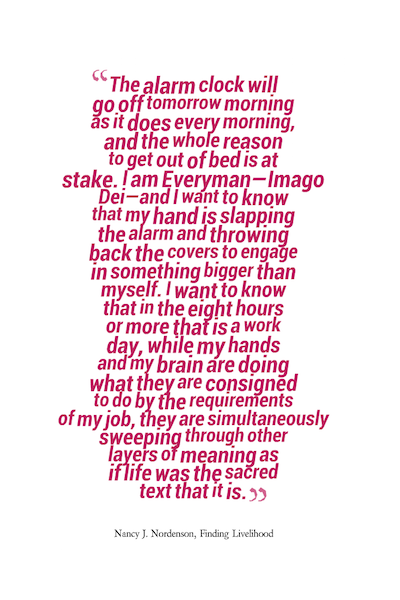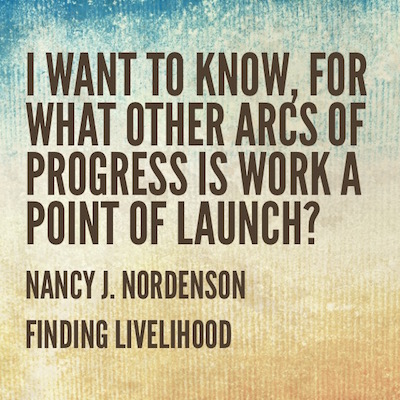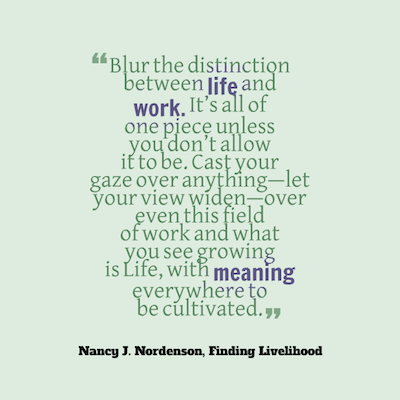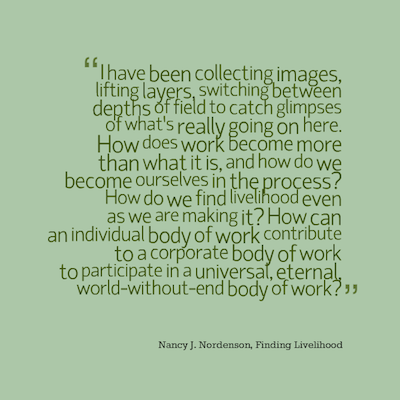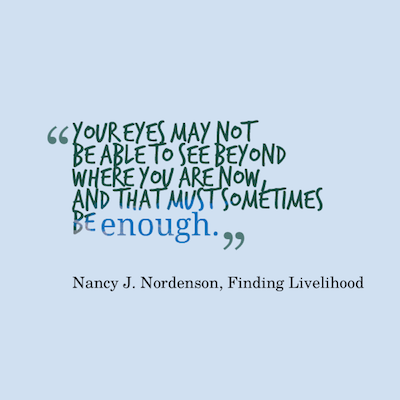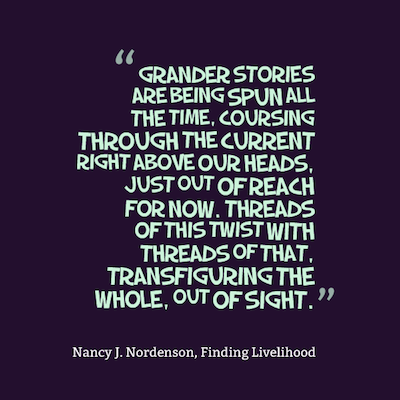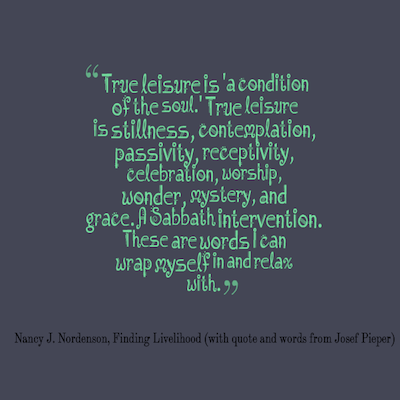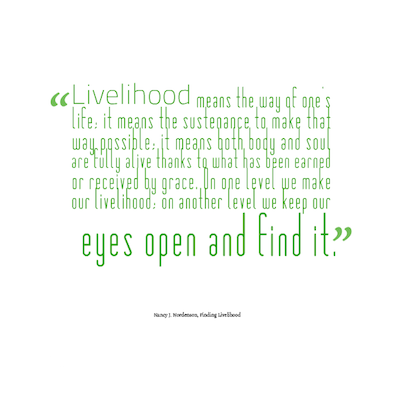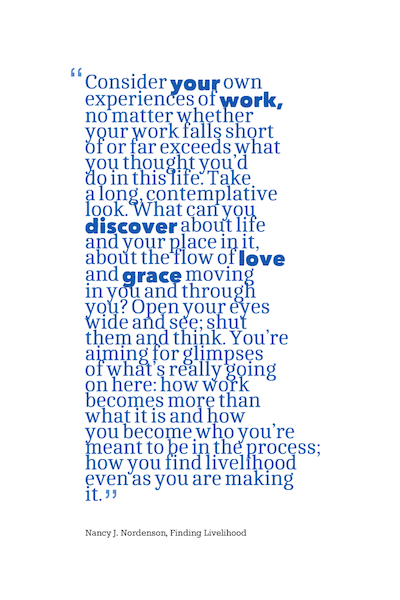The first book I read by Anne Lamott was Traveling Mercies, which I wrote about in a post back in 2004. While it was dead serious, it was also hysterical. I was reading it as the same time as a friend of mine, and we would call each other and read excerpts over the phone, not being able to finish our sentences for laughing so hard.
I just finished her book, Stitches: A Handbook of Meaning, Hope, and Repair, which came out in 2013. I started it about a year ago but for some reason was interrupted and didn't finish. When I picked it up again a couple weeks ago, I started again from the beginning and was glad for the double dose of her thoughts.
Stitches has Lamott's humorous garnishes, but the tone is more serious than Traveling Mercies. The book is a gathering of "the observations that in troubled times help me find my way once again to what T. S. Eliot called 'the still point of the turning world.'" Her key metaphor is that of stitching together scraps, such as you do when making a quilt, to make something new, whole, and strong.
For your reading pleasure and overall encouragement in life, here are some excerpts:
“Most of us have figured out that we have to do what’s in front of us and keep doing it. We clean up beaches after oil spills. We rebuild whole towns after hurricanes and tornadoes. We return calls and library books. We get people water. Some of us even pray. Every time we choose the good action or response, the decent, the valuable, it builds, incrementally, to renewal, resurrection, the place of newness, freedom, justice. The equation is: life, death, resurrection, hope.”
~
“When you can step back at moments like these and see what is happening, when you watch people you love under fire or evaporating, you realize that the secret of life is patch patch patch. Thread your needle, make a knot, find one place on the other piece of torn cloth where you can make one stitch that will hold. And do it again. And again. And again.”
~
“Love bats last.”
~
“This is who I want to be in the world. This is who I think we’re supposed to be, people who help call forth human beings from deep inside hopelessness.”
~
“The search for meaning will fill you with a sense of meaning. Otherwise life passes by in about seven weeks, and if you are not paying attention and savoring it as it unfurls, you sill wake up one day in deep regret. It’s much better to wake up now in deep regret, desperate not to waste more of your life obsessing and striving for meaningless crap. Because you will have finally awakened.”
Any one of those excerpts, as well as any of several hundred other stand-alone great lines or paragraphs in the book are worthy of writing on an index card or printing out and cutting to the size of your back pocket to carry around for quick and frequent referral.
~~~
[Photo: taken in the stunning library at St. John's University in Collegeville, Minnesota.]






